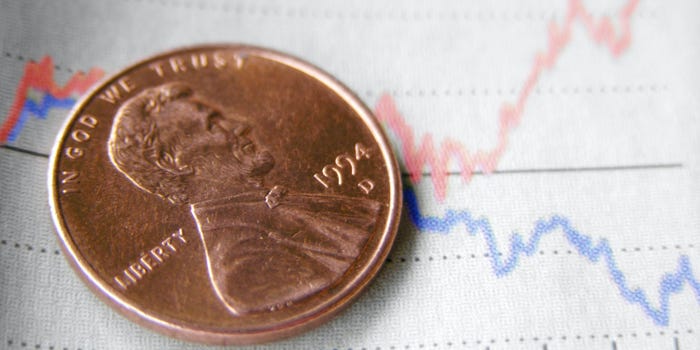Penny Stock Investing: The Potential Benefits And Dangers
Sep 04, 2022 By Triston Martin
Investing in penny stocks demands vigilance and caution due to the significant risks involved and the possibility of above-average rewards. Penny stocks have a high degree of risk and are thus rarely offered by full-service brokerages. Shares in firms either on the verge of bankruptcy, have a very limited or nonexistent customer base or are deeply in debt make up a large portion of the portfolio. It's possible to make money with penny stocks through two different, equally risky methods.
Penny Stocks: The Straight Dope
It's common to describe "penny stocks" as stocks with a share price of less than $1. Some consider equities trading for less than $5 to be penny stocks. However, penny stocks (or microcap stocks) are defined by the Securities and Exchange Commission as having a market value of less than $250 million.
Penny stocks are commonly traded on the Pink Sheets or OTC Bulletin Board. Both interactions require utmost care. This is especially relevant for equities trading on the Pink Sheets since, unlike OTCBB stocks, they are not obliged to file with the SEC. Not even the OTCBB should raise your aspirations.
Whether or not the firm will survive, much alone grow, requires sifting through a lot of information, which is contradictory. Remember that the Pink Sheets and the OTCBB have no requirements for continued listing. 2
Pump-and-Dump Techniques

This type of deception is quite common. Promoters are those who try to increase awareness of a relatively unknown business. The stock price goes up because of the purchases of inexperienced traders. When the stock price rises to an unsustainable level, the bad guys dump it for a great profit. The investors are left out in the cold.
Penny stock pump-and-dump scams are widely disseminated through online forums and free newsletters. Both the publisher and the author (or both) receive compensation for highlighting these canines. Always read the fine print before committing any money to a penny stock newsletter. Financial ties to stock promoters may be revealed.
Short-and-Distort Scams
Con artists utilize short selling to gain money in this case. The goal of a short seller is to profit from a decline in the stock's price. Shorting is a trading practice in which an investor temporarily "borrows" shares from a broker before selling them on the open market. If the price of the asset declines, the short seller can profit by purchasing shares at a reduced price.
The short seller returns the borrowed stock to the lender and keeps the difference. Scammers in the penny stock industry often short-sell a stock and then deliberately drive down its price by disseminating false and harmful rumours about the firm.
Fraudulent Reverse Mergers

As a result, the private firm may easily inflate its stock price by reporting inflated earnings. Some reverse mergers are perfectly legal, but you can recognize a fake one by looking into the company's past and seeing whether there was any suspicious merger activity.
Mining Fraud
Since the dawn of humanity, people have been lured by the promise of riches in the form of gold, diamonds, and oil, leading to a long history of mining fraud. In the mid-1990s, Bre-X became one of the most well-known mining frauds. David Walsh, the company's founder, lied about finding a huge gold mine in Burma. The corporation's value skyrocketed in 1997, when speculation peaked, from a few cents per share in the penny stock market to $4.4 billion. Because of the company's demise, most investors lost everything.
The Guru Conspiracy
With enough money for promotion, anyone can look like an expert. They, unfortunately, tend to amass devoted followers. Typical scams of this nature claim that learning the financial guru's "unique secret" would allow you to live in his "lakefront house" and drive his "expensive automobile."
For a one-time fee, the expert offers to teach you how to profit from trading penny stocks. Throw away that letter or email. The stock market is not a get-rich-quick scheme that works for everyone.
How to Spot and Avoid Cons
There is a lot of fraud, manipulation, and other shenanigans in the penny stock market. The infamous incidents of Enron and WorldCom show that such abusive techniques are not limited to penny stocks and micro-caps, and investors should be aware of this. However, how can you protect yourself from dishonest penny stock marketers looking to pull a fast one on you? Check out the list of recommendations below.








